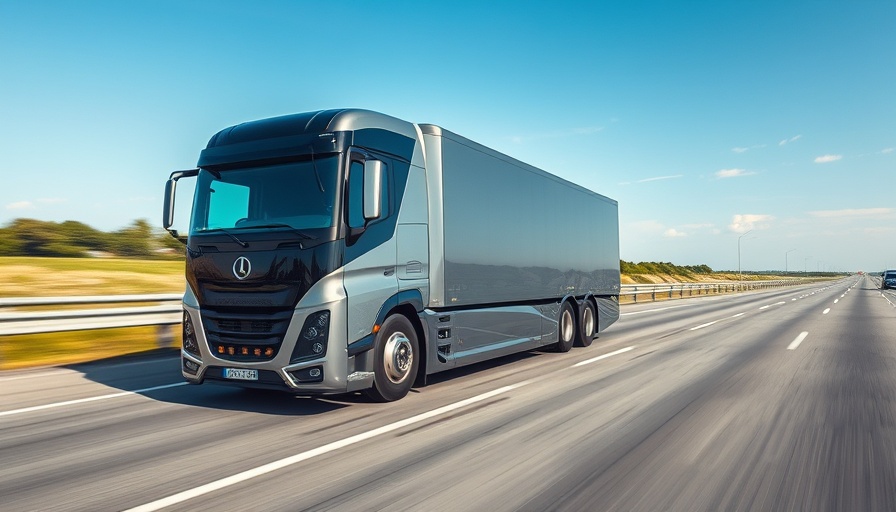
Revolutionizing Freight: The Rise of Driverless Big Rigs
In an era where technology consistently reshapes our daily experiences, autonomous vehicles have made a groundbreaking leap in the world of transportation. Aurora Innovation has officially launched the world's first commercial driverless trucking service operating between Houston and Dallas, marking an unprecedented milestone in the logistics sector. This innovation not only promises to enhance the efficiency of freight transport but also sets a precedent for the future of the industry as technology continues to integrate into everyday operations.
What Does This Milestone Mean?
The launch of Aurora's driverless freight service is a game changer for the trucking industry, which faces a chronic driver shortage and increasing demand for delivery capabilities. According to recent data, the American Trucking Association estimates a shortage of approximately 60,000 drivers. By incorporating autonomous technology, companies can alleviate reliance on human drivers, thus streamlining operations and potentially reducing delivery times significantly.
A Closer Look at the Technology
At the heart of Aurora's service is a combination of advanced sensor technology, machine learning algorithms, and robust data analysis capabilities. These components allow the trucks to navigate highways autonomously, adapt to changing road conditions, and ensure safe deliveries without human intervention. This level of automation not only minimizes potential human error but also optimizes routes in real-time, enhancing the overall efficiency of logistics. As more companies adopt similar technology, we may witness lower transportation costs for consumers, benefiting the economy as a whole.
Public Response and Industry Impact
The public's response to autonomous trucks has been mixed. For some, the prospect of driverless vehicles raises safety concerns, with worries surrounding potential accidents or technology failures. Conversely, for others, the advancement offers hope for efficiency in the supply chain and economic growth in logistics jobs that are less reliant on traditional driving roles. As we move forward, it's essential for companies like Aurora to prioritize transparency through safety regulations and detailed reporting on the performance of their fleets.
The Future of Driverless Logistics
Looking to the future, we can anticipate a steady rise in the adoption of autonomous vehicles within logistics. As more states and companies embrace this technology, we could see a substantial shift in regulatory frameworks surrounding freight transportation more broadly. For example, Texas has already established a supportive environment for innovative transport solutions, making it a suitable landscape for this technological evolution.
Tools and Resources for Understanding Autonomous Transportation
For those interested in diving deeper into the topic of autonomous trucking, various resources are available to help navigate this complex landscape. Industry reports, government publications, and online forums dedicated to logistics and technology provide a wealth of information. Recommendations include subscribing to journals focused on supply chain management, attending conferences centered around autonomous technology, and engaging with communities online that discuss the trends and implications of these advancements.
Actionable Insights: What Can Businesses Do?
As the freight industry sees an influx of automation, businesses must adapt to stay competitive. Incorporating technologies such as fleet management software, embracing data analytics, and investing in driver training for truck operators could offer a competitive edge. Companies should also remain informed about both local and federal regulations that govern autonomous vehicles to ensure compliance and safety.
Final Thoughts
The launch of driverless big rigs on Texas highways is just the beginning of a sweeping change in the freight industry. As we observe how this technology harmonizes with existing infrastructures, stakeholders from drivers to businesses should prepare for a future where autonomous vehicles drum up both opportunities and challenges. By understanding the implications of these technological advancements and engaging with them proactively, there lies a potential for a transformative impact on the logistics industry.
As you consider the future of transportation, take initiative by following developments in autonomous freight services and reflect on how they may impact your industry. Stay informed, engaged, and ready for the transformative journey ahead.
 Add Element
Add Element  Add Row
Add Row 



Write A Comment